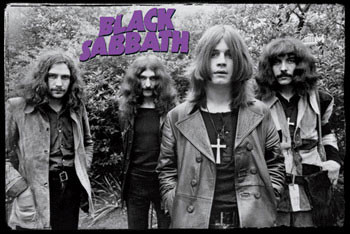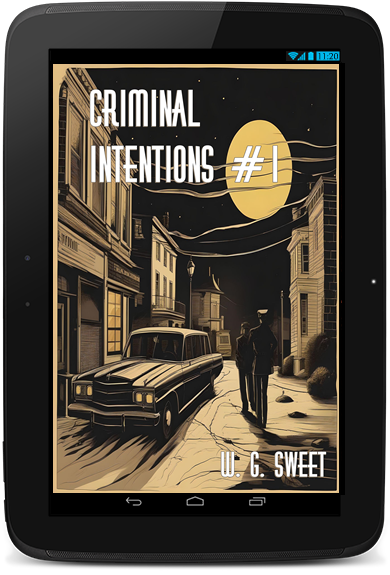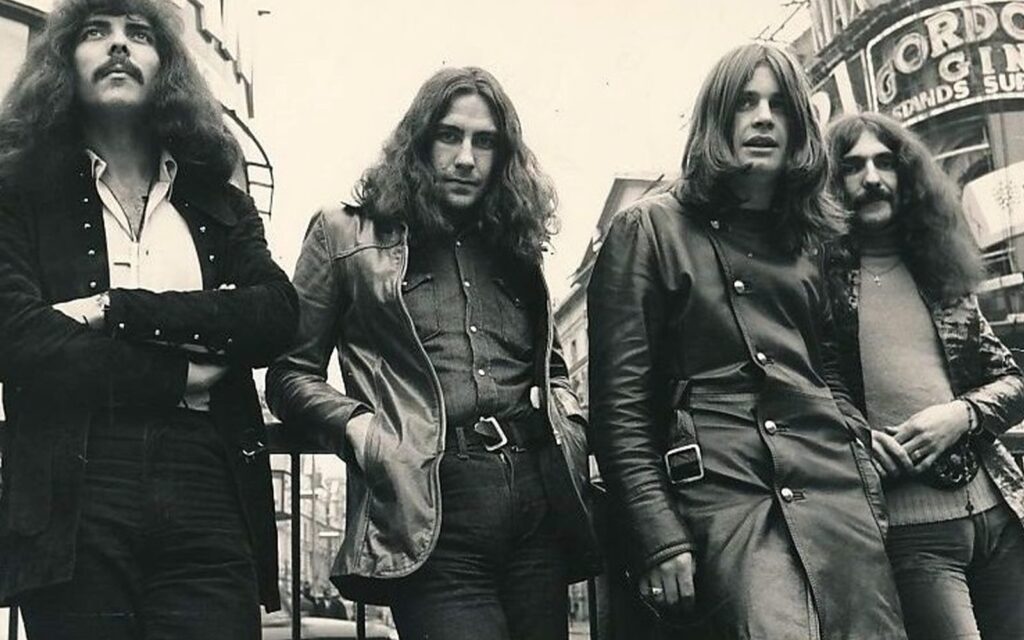
Born from the industrial gloom of Birmingham, England, Black Sabbath didn’t just play rock and roll; they forged a new, heavier, and darker sound that would become the very blueprint for heavy metal. While other bands of their time were exploring the psychedelic and blues-rock frontiers, Black Sabbath created a sonic world of their own—one defined by crushing riffs, ominous tones, and lyrics that delved into war, evil, and the supernatural. Their legacy is not just one of a successful band, but of pioneers who single-handedly birthed a genre.
The Principal Members and Their Talents
The foundational and most celebrated lineup of Black Sabbath, often referred to as the “classic four,” came from the same working-class neighborhood of Aston, Birmingham. Each member brought a unique and indispensable talent to the group, creating an alchemy that has rarely been replicated.
Tony Iommi (Guitar): As the band’s primary musical architect, Tony Iommi is revered as the “Riff Master.” His unique, heavy sound was born out of necessity after a factory accident severed the tips of two of his fingers. To compensate for the injury and the pain it caused, he down-tuned his guitar and played with custom-made prosthetic fingertips. This physical limitation became the band’s greatest creative asset, as it forced him to play with a simpler, more powerful style. The result was a series of iconic, slow, and menacing riffs that became the backbone of heavy metal. His ability to craft instantly recognizable and unforgettable guitar lines, often rooted in blues but amplified to an unprecedented level of aggression, established the fundamental vocabulary of the genre.

Geezer Butler (Bass): Geezer Butler’s contributions were twofold: he was a groundbreaking bassist and the band’s principal lyricist. As a bassist, he was one of the first to down-tune his instrument to match Iommi’s guitar, creating a massive, low-end sound that was both melodic and deeply resonant. His playing style was dynamic and inventive, often mirroring or complementing Iommi’s riffs, but also capable of complex, standalone melodic lines. Lyrically, Butler’s Catholic upbringing and interest in the occult, fantasy, and social issues provided the band with its signature dark themes. His words explored topics like war (“War Pigs”), drug abuse (“Snowblind”), and existential dread, giving the music a profound and often terrifying conceptual weight.
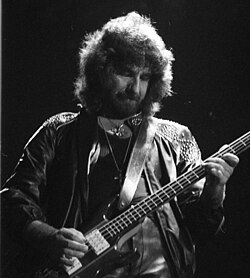
Bill Ward (Drums): Bill Ward’s drumming was the powerful and jazz-influenced engine behind Black Sabbath’s sound. His style was anything but a standard rock beat. Influenced by jazz drummers like Gene Krupa and Buddy Rich, Ward incorporated complex rhythms and fills that gave the band’s slow, lumbering grooves a sense of forward momentum and unpredictable swing. He could shift from a thunderous, primal pound to a delicate and nuanced rhythm, adding a layer of musical sophistication that is often overlooked. Ward’s drumming was not just about timekeeping; it was an integral part of the band’s sound, providing a chaotic and dynamic foundation that was perfectly suited to their dark aesthetic.
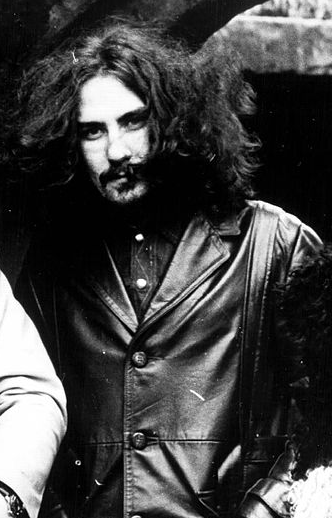
Ozzy Osbourne (Vocals): Ozzy Osbourne’s voice was the human centerpiece of Black Sabbath’s music. With a unique, nasal tone that was both honest and emotional, he didn’t possess the typical power-singer range of his contemporaries. Instead, his delivery was urgent, raw, and often laden with a sense of dread and vulnerability. His vocals were a perfect match for Butler’s dark lyrics, conveying a feeling of paranoia, despair, and menace that was utterly convincing. His stage presence, which evolved from a shy frontman to the charismatic “Prince of Darkness,” became an icon of the genre. Ozzy’s personality made the band relatable, even as they explored the most unsettling themes, and his subsequent solo career and status as a reality TV star only cemented his place as one of rock’s most enduring figures.
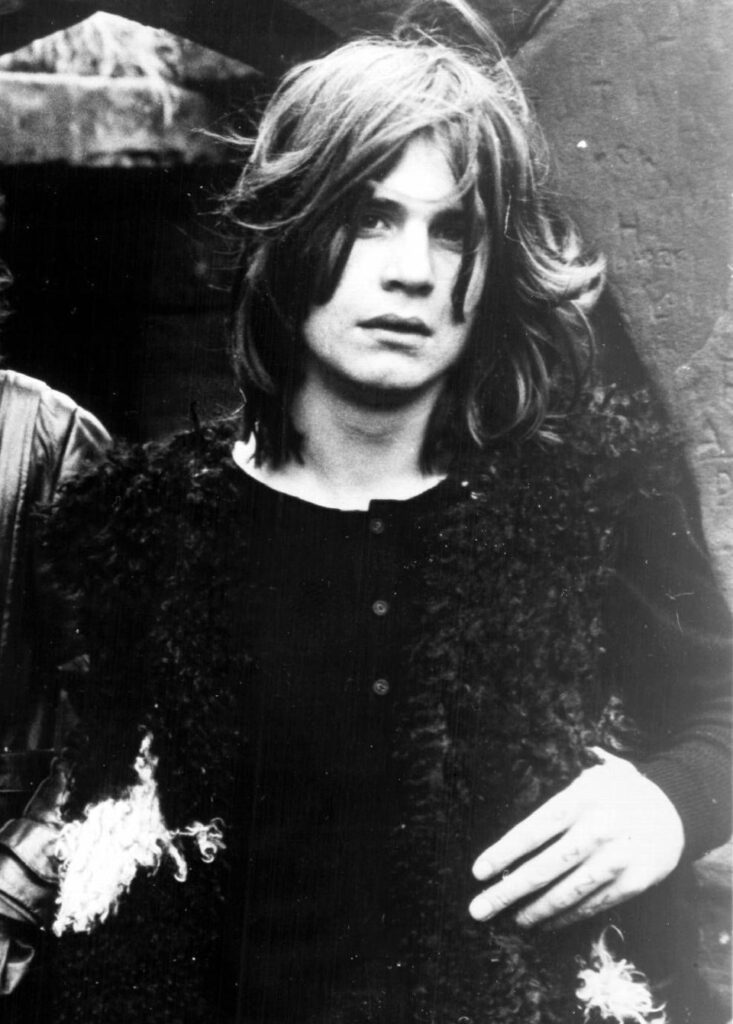
The Major Songs
Black Sabbath’s first five albums, a remarkably productive and influential run, are a goldmine of heavy metal’s foundational anthems.
- “Black Sabbath” (1970): The title track from their debut album is arguably the birth of heavy metal as we know it. Opening with a sound effect of a storm and a tolling bell, the song is built around a tritone—a dissonant musical interval historically known as the “devil’s interval.” Iommi’s slow, sludgy riff, combined with Ozzy’s chilling vocals and Butler’s dark lyrics about a satanic figure, created an atmosphere of pure foreboding that was completely new to rock music.
- “Paranoid” (1970): Written as an afterthought to fill out the album, “Paranoid” became the band’s most commercially successful song. Its fast, driving riff and punchy structure were a radical departure from their usual doom-laden tempo, demonstrating their ability to write a powerful and concise rock anthem. The song’s simple yet effective lyrics about anxiety and mental health resonated with a generation of listeners.
- “Iron Man” (1970): With its crushing, instantly recognizable riff, “Iron Man” is a towering figure in the heavy metal pantheon. The song tells a sci-fi narrative of a man who travels to the future, witnesses the apocalypse, and returns to warn humanity, only to be turned to steel by a magnetic field. Unable to speak, he is scorned and mocked, and in a final act of despair, he exacts his revenge, causing the very apocalypse he had foreseen. The song’s slow, lumbering feel perfectly embodies the tale of a walking metal giant.
- “War Pigs” (1970): A potent and powerful anti-war anthem, “War Pigs” showcases Butler’s masterful lyricism. The song paints a grim picture of military leaders as sorcerers and Satanic figures, sending the poor to their deaths while they hide in their “armies of the world, fighting for the gold.” The track’s dynamic shifts, from its slow, heavy opening to its faster, more frantic middle section, perfectly capture the chaos and horror of war.
- “Sweet Leaf” (1971): A classic stoner metal anthem, “Sweet Leaf” is notable for its heavy, distorted riff and its ode to marijuana. It’s a prime example of the band’s deep, groovy sound and their ability to blend heavy themes with personal experiences.
Their Impact on Rock and Roll
Black Sabbath’s influence on rock and roll is immeasurable. They didn’t just contribute to a genre; they invented a new one. Their innovations laid the groundwork for virtually every form of heavy music that followed.
- The Birth of Heavy Metal: The most significant impact of Black Sabbath is their role as the progenitors of heavy metal. By slowing down the tempo, down-tuning the instruments, and focusing on a darker, more powerful sound, they created a sonic template that was distinct from the blues-based hard rock of their contemporaries like Led Zeppelin and Deep Purple.
- The Heavy Riff: Tony Iommi’s riff-writing became the foundation of all heavy music. His use of simple but powerful, repetitive guitar lines created a hypnotic, almost monolithic sound that prioritized impact over speed or technical flash. This riff-centric approach is the core of everything from doom metal to thrash and death metal.
- Lyrical Themes: Black Sabbath broke new ground by moving away from the “peace and love” ethos of the 1960s and the sexual bravado of blues rock. Their exploration of war, occultism, drug addiction, and social alienation gave their music a new, more serious and brooding dimension that resonated deeply with a disenfranchised youth.
- Influence on Subgenres: Almost every metal subgenre can trace its lineage back to a Black Sabbath song. The slow, doomy sound of their early work is the direct ancestor of doom metal. The faster tempo of “Paranoid” provided an early blueprint for punk and thrash metal. Bands like Metallica, Slayer, and Pantera have all cited Black Sabbath as a primary influence.
Black Sabbath’s legacy is one of rebellion, innovation, and an unwavering commitment to a dark and heavy sound. They were the architects of a genre, creating a powerful, enduring sound that continues to inspire and define heavy music to this day.
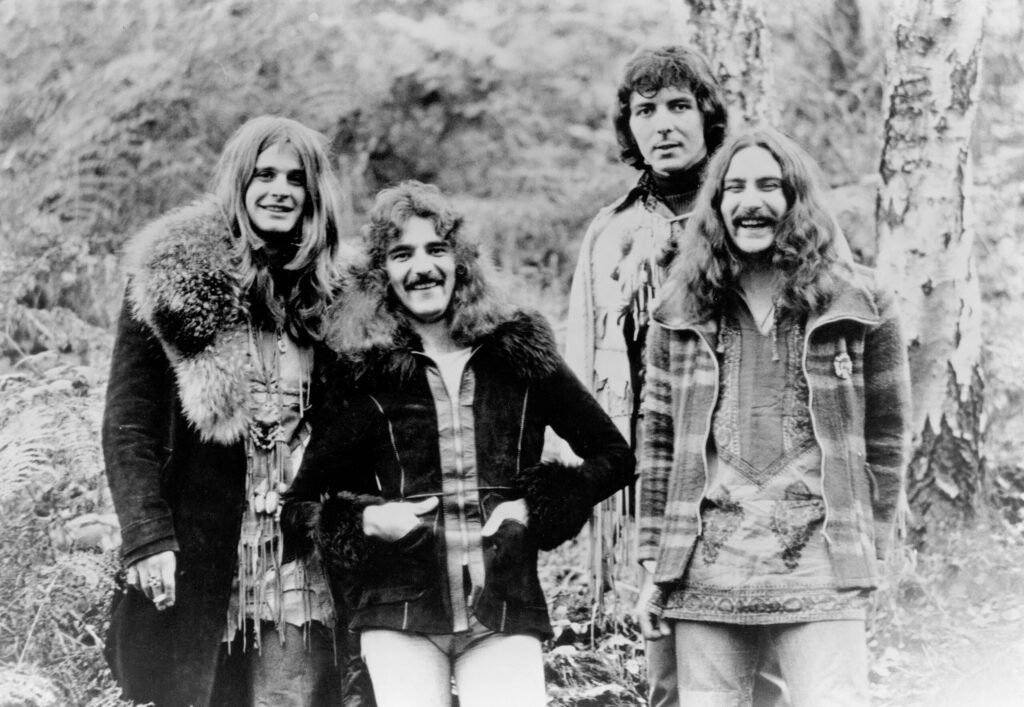
Home: https://www.wendellsweet.com
